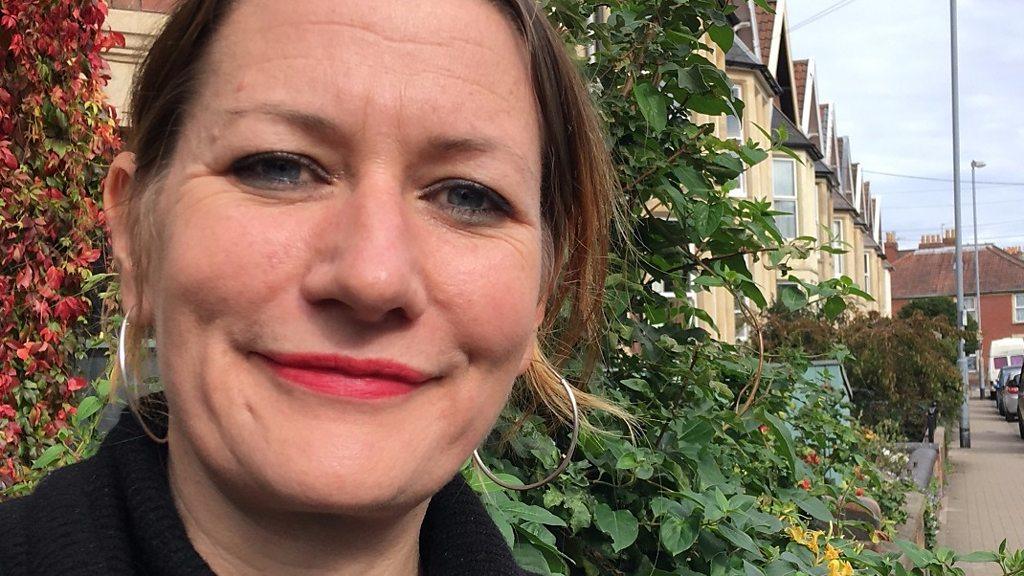Loneliness: Actress's mission to combat isolation
- Published
"Take friendships seriously" to fight loneliness
Actress, writer and singer Carys Eleri created a one-woman comedy show to address the neuroscience behind love as well as loneliness. Here she explains why she is on a mission to combat loneliness.
Loneliness has always existed. It is now being heightened by our phone addiction.
I have always considered myself to be this really bubbly person with lots of friends and an amazing family. So it was really strange when I realised suddenly, oh my gosh, I'm lonely.
I was working long hours, I was single and living on my own. That had never bothered me until I realised my behaviour was changing.
Slowly, instead of on my days off actively seeking people out to spend time with them, I was finding myself becoming more on my own.
What was going on here? This wasn't like me at all.
That's when I realised absolutely everything I did was on my phone.
You can just stare at your phone and do yoga through a yoga app. You don't even have to go to a class any more. So you don't actually have to speak to anybody.
People are telling you you maybe need to get a boyfriend. There's an app for that, so you are trying to pull in your living room, swiping right and left, and there is nobody around.
It was when I was doing that, that I realised I had been fooled by all this technology. I had been fooled into feeling connected with people when I really wasn't.
Love and loneliness are two universal states. No matter who we are, we all feel love and loneliness, so that's why I created my comedy show, Lovecraft, based around that, so I could really get my message across.
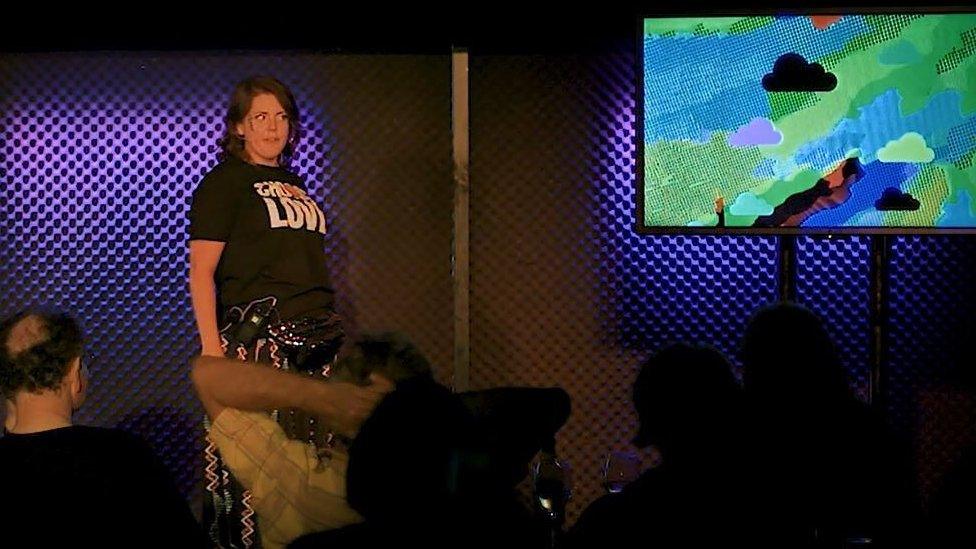
Carys Eleri has performed her show around the country
I made jokes about the good and bad bits of living on your own, and I told the story quite frankly as well as scientifically and factually.
But, during my research, I also learnt a lot - like how loneliness has its own page on the NHS website. In fact, it kills people, being up there with obesity and smoking.
If you are feeling lonely, I would advise people to call a friend, go and see friends. It is nurturing friendships that are really, really important to us.
By that I mean, actual friendships in the real world, not the online world.
There are so many physical health benefits to just being physically present in people's lives.
For me, the opposite of being lonely is to love.
I'm not talking in a romantic sense. I'm talking about being cared for and that you matter. We need to get more connected as human beings.

What happens to the brain when you are lonely?
Dr Dean Burnett, a neuroscientist and lecturer at the Cardiff University Centre for Medical Education, said: "The reason humans have such big brains is to facilitate social interaction, to engage with and relate to people.
"The brain has evolved to be sociable so if you cut it off from that, it's depriving it of something it needs.
"If you deprive a developing or adolescence brain of company, it won't develop normally.
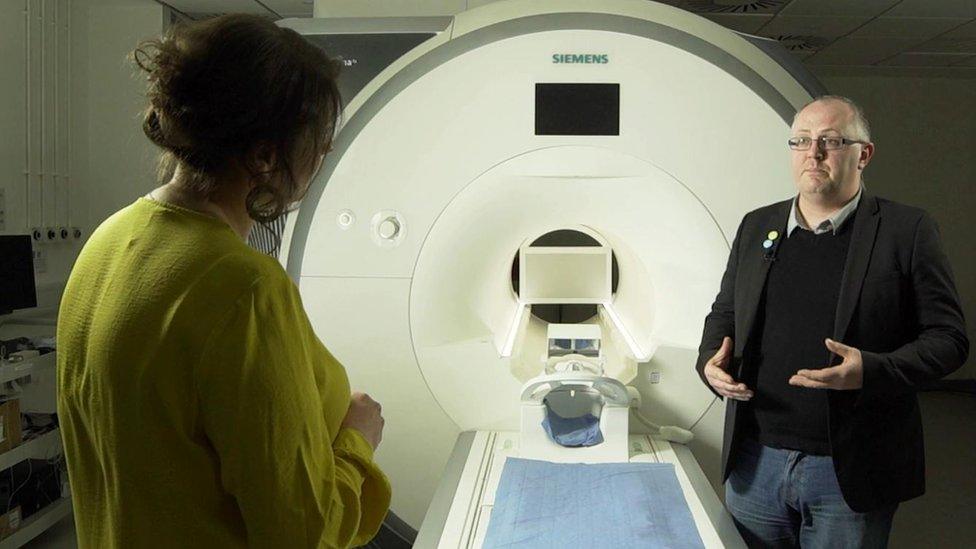
Carys and neuroscientist Dr Dean Burnett discussed the effect of loneliness on the brain
"Chiefly, emotions become a problem - if you take the emotion of guilt, for instance, this only works in social interactions.
"If you don't learn that, then your brain struggles to handle and deal with these emotions as well as it should.
"The consequences of that will lead to certain behavioural changes.
"You drink more, you eat more, you don't take the exercise you need as you are not motivated, which could then lead to unpleasant health consequences."
You can watch the full story on Wales Live on the BBC iPlayer.
- Published10 April 2018
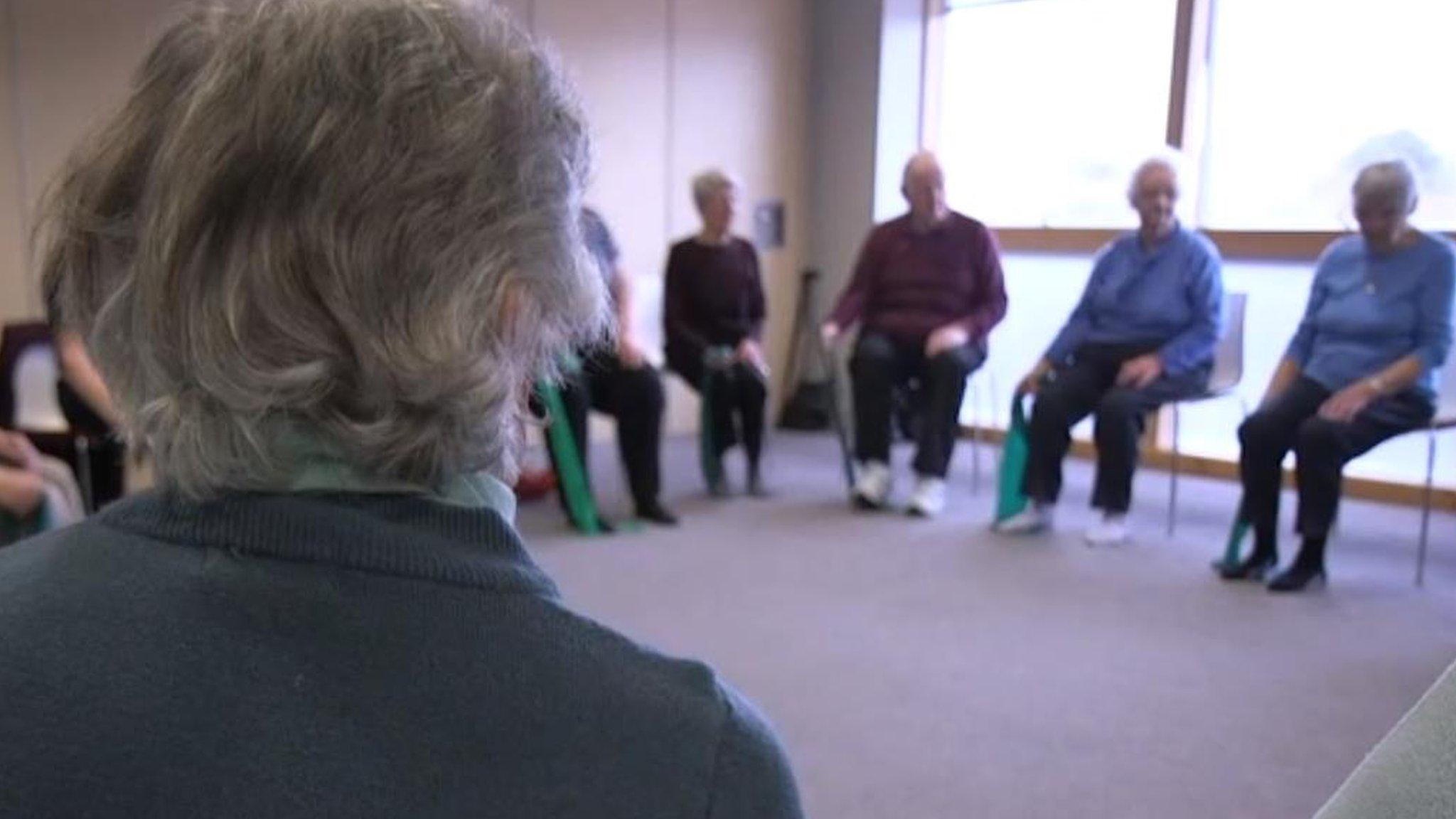
- Published17 November 2017
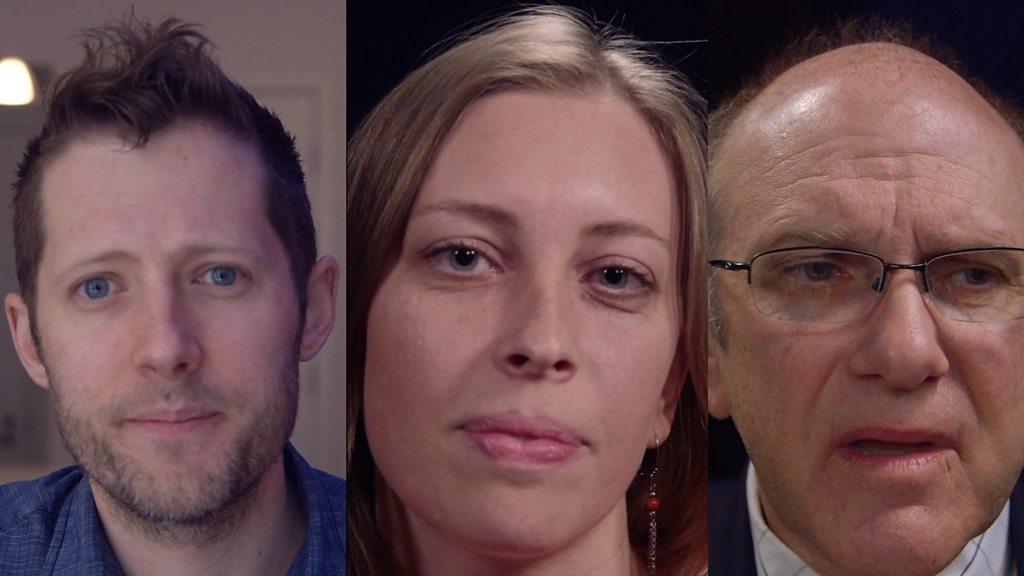
- Published21 November 2017
